27 Powerful Tips For Reducing Your Grocery Expenses When Travelling
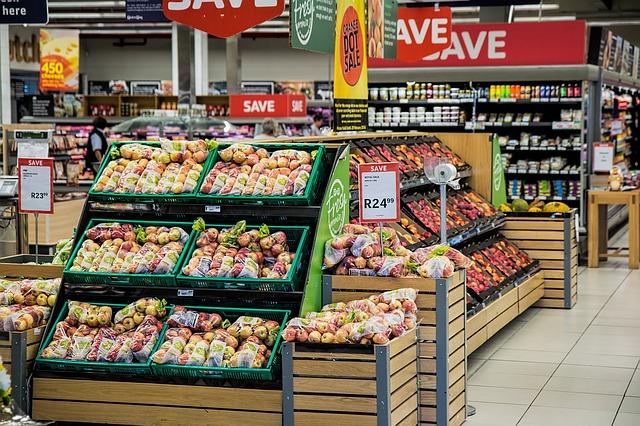
All around the world, grocery prices are rising. Every time you make a visit to the grocery store it seems that the price for some item or the other has increased since your last visit.
The factors driving these rising prices are complex, but climate change has been implicated as playing a major role. Some regions are experiencing more drought while others are experiencing unseasonal flooding but the overall result is that agricultural productivity is being affected and the global supply of food continues to struggle to meet demand.
There's never been a more important time to understand how to shop for groceries more efficiently and know how to keep that grocery bill from spiralling out of control.
The secret is knowing where to shop, when to shop and how to shop as well as understanding a few other key hacks and principles that'll allow you to keep your bill under control when everyone else's is increasing.
Let's get right into it.
Know WHERE To Buy
#1 - Avoid loyalty to one particular brand or supermarket
While one-stop shops are convenient, you’ll often save money by buying your items from 2 or 3 different stores, according to which stores those items are cheapest in. For example, bread, milk and eggs might be cheaper in store (a), while store (b) is cheaper for cheese and yoghurt.
When it comes to figuring all this out, slow travellers definitely do have an advantage. If you have the time to really explore a town and figure out the cheapest places to buy groceries, then you’ll always have the upper hand.
If you’re travelling in well developed countries that have several different big supermarket names, there are also now several smartphone apps that can show you price comparisons for specific items between the different supermarkets.
Just search for ‘grocery-saving apps’ in your go-to app store and see if you can download an app that’s relevant to your region or country.
#2 - Know that prices often vary from branch to branch
Be aware that with some big supermarket names, prices vary across the different branches due to nearby competitors and other factors. The Tesco 5 km away may have lower prices than the Tesco 1 km away.
However, other supermarket names such as Lidl, Aldi, Netto, Waitrose and M&S have consistent prices throughout all their branches.
#3 - Focus your attention on the cheapest supermarkets

For those that don't have the time or motivation to visit several supermarkets when doing the groceries, be aware that some supermarket names are consistently cheaper. In Europe, Aldi & Lidl are known to be the best supermarkets for bargain hunters. Aldi is also the cheapest supermarket in the US, with Walmart a good second choice.
#4 - Visit wholesale local markets more often
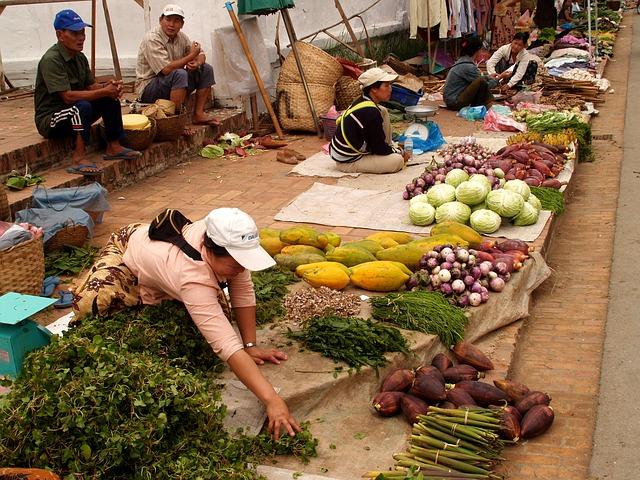
Wherever town, city or village you’re staying in, find out if there’s a wholesale local market near where you’re staying.
We know in Asia, at least, they’re often the cheapest places to buy perishable produce like fresh fruits, veggies, meat, eggs, bread and other basic staples.
One of the primary advantages local markets have over supermarkets is that it’s possible to bargain with the merchants…. so don’t forget to bargain!
In other continents, look out for farmer’s markets selling their fresh produce. In terms of price, they’re usually on par with the supermarkets but in terms of quality and flavour, they’re superior.
#5 - Consider specialty stores
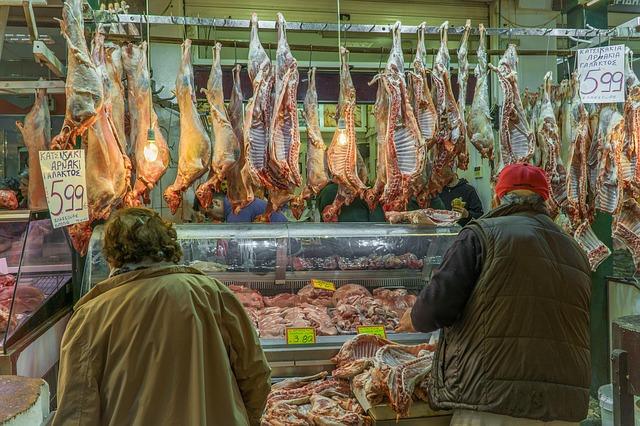
Certain items can be obtained more cheaply in specialty stores. For example, if you want to buy rice or Ramen noodles in Europe, visit special Asian or Indian ethnic grocery stores and you’ll often find the prices are much lower for a higher quality of those items.
Meat can sometimes be bought more cheaply from the butcher’s shop than from the supermarket. You might find the cheapest bread at the local bakery. The fishmonger might have the best deals on raw fish and seafood. The greengrocer will often be the cheapest place to buy your fruits and veggies.
Visit the local specialty stores, compare their prices to those of the supermarkets and see if there's any money to be saved.
Know WHAT To Buy
#6 - Stick to the basic staples
When you go grocery shopping, it’s those basic staples that give you the best bang for your buck. Basic foods like butter, bread, eggs, milk, yoghurt, cheese, pasta, rice, beans and potatoes.
Meat is expensive so you should generally buy a lot less if you’re trying to save money. However, if you can’t live without it, then whole chickens, pork sausages and ground beef are normally the cheapest options at the supermarkets.
Buy meat as big as possible and butcher it yourself to cut out middleman costs. Avoid buying the more expensive meats like lamb, roasting beef and steaks. Tougher, cheaper cuts of meat can still be made tender by cooking for longer.
Stay away from all the fancy processed and packaged products on the supermarket shelves. These tend to be more expensive, nutritionally poorer and often full of artificial additives and preservatives.
#7 - Choose the cheapest brands & lowest food grades (especially with basic staples)
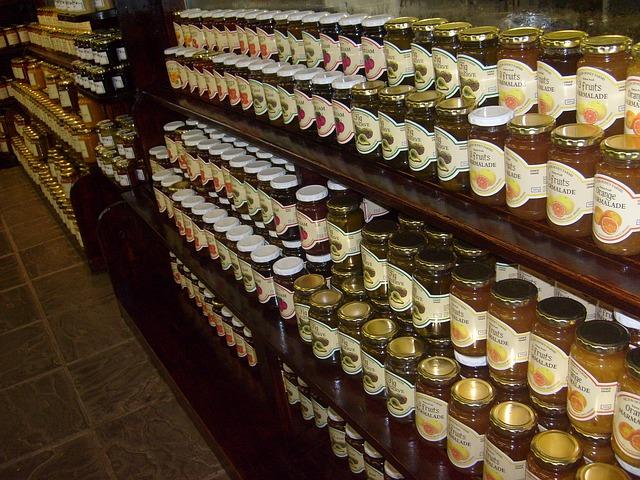
If you’re shopping in some of the bigger supermarkets, you should be aware that the ‘own-brand’ goods are often a lot cheaper than the branded items, yet often without a significant quality difference. This is particularly true for basic staples like flour, bread, rice etc.
However, bear in mind that ‘finest’ ranges of the store’s own brand can often cost more than the normal branded products.
If just shopping in ordinary grocery stores, always check if there are two (or more) brands of the item you're buying and see which one is cheaper.
If different quantities are involved between different brands of the same product, you need to compare the unit price (e.g price per kg) of the brands. Unfortunately, not all supermarkets display the unit prices so you’ll often have to do the calculations yourself.
Be aware of prices relating to different grades too. For example, there are 5 different grades of rice in our local supermarket and they vary in price tremendously. Meat, fruit, eggs and many other groceries can all be graded.
#8 - Buy in-season fresh fruits & veggies
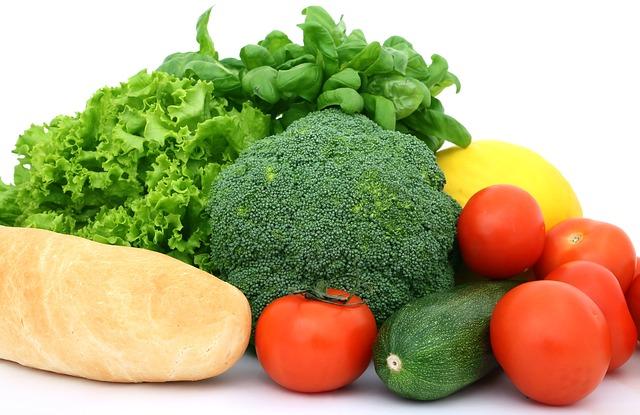
To save money on perishable produce, you have to adapt to the changes in the seasons.
When mangoes are in season in Asian countries for example, they’ll be locally plentiful and cheap to buy from the fruit markets and supermarkets. Out of season, they have to be imported from elsewhere and the price shoots up.
If you’re unsure which fruits or vegetables are in season, do some research or just look at the price tags. Compare the unit price (price per/kg) of all the different fruits, to figure out which ones you should be buying and which ones you should be avoiding.
#9 - Buy frozen fruits & veggies in the off-season

When fresh produce is too expensive, turn to the much cheaper frozen produce. Even when fresh produce is in-season, frozen produce is still a great option. It’s really cheap and it’s just as nutritious because the nutrients are not destroyed in the freezing process.
You can use frozen berries to make smoothies and frozen vegetables can be first defrosted and then used just like normal vegetables.
#10 - Buy sauces in glass bottles instead of plastic squeezy ones
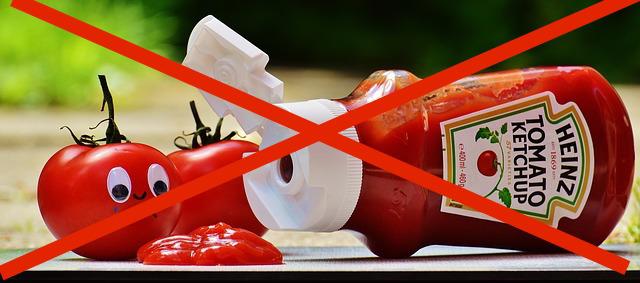
Sauces like ketchup, mayonnaise and salad cream should be bought in glass bottles and not the plastic squeezy bottles. These plastic bottles are more expensive to manufacture due to the special plastic used and the fancy squeeze cap.
#11 - Avoid foreign imports
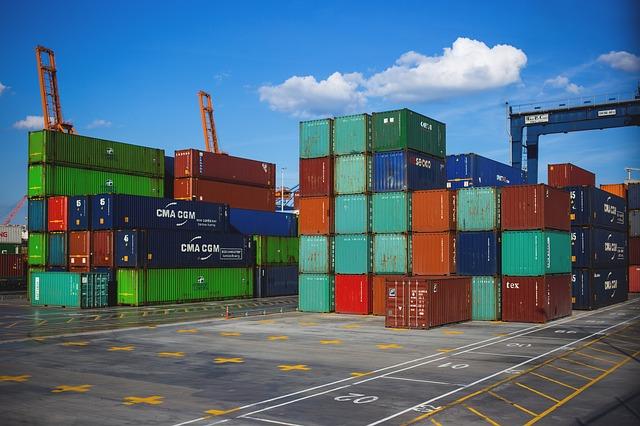
It’s really nice to be able to buy New Zealand butter in a Vietnamese grocery shop or supermarket but it’s not exactly economical.
If you’re in Asia for example, foreign imports like peanut butter, nutella, butter, cheese, cereals, pasta, chocolate etc. are hiking up your shopping bill dramatically. Stick with the local staples and eliminate foreign imports to save money on food.
Know HOW To Buy
#12 - Buy loose items (not pre-packaged)
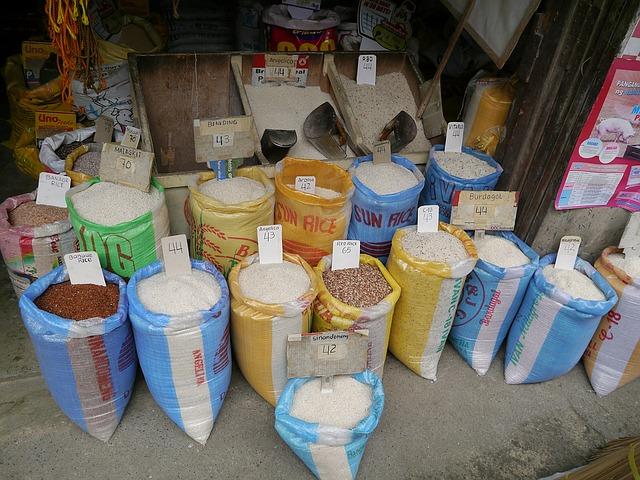
This applies to foods that can be bought loosely from big sacks, baskets or bins; foods like spices, eggs, sugar, salt, rice, flour, nuts and fruits.
Also, those pre-made microwave meals you find in supermarkets are a lot more costly than the cost of the individual items that make them up. Meat is normally a lot cheaper to buy from the Deli counter because there's no packaging.
If you can buy the same thing loose, then buy it loose and do the prep work yourself if any is needed. Otherwise, you’re simply paying more for the packaging and convenience.
#13 - Buy in bulk (if possible)
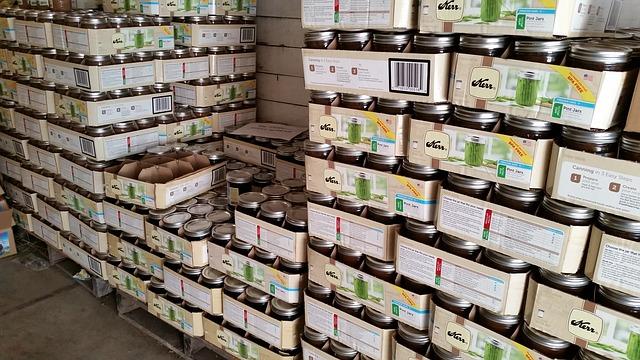
Okay, so sedentary people have a big advantage over travellers here. They can buy everything in bulk (whole chickens, whole pigs, industrial size peanut butter, big sacks of rice etc.) and if a food item is perishable they can always preserve it in the fridge or freezer for later consumption.
Unless you’re travelling very slowly (staying several weeks or months at a time in a single place) buying in massive bulk will be impractical for you, as you’d have to carry big heavy quantities of food with you to your next destination and you also won’t usually have access to a freezer to stop perishable foods from going bad.
However, even if you’re moving around a lot, you can still avoid bad habits like buying small snack size packets of crackers, nuts, crisps etc. These are terrible value for money. Basically, just buy as big as you can handle, given your circumstances.
Travellers who have more time to spend in a place should be on the lookout for cash-and-carry wholesale stores such as Costco and Makro. You can buy things far more cheaply in bulk at these places. Seek out the wholesale stores in whatever country you happen to be travelling in.
Know WHEN To Buy
#14 - Shop on the right day of the week
The best day to shop in many supermarkets is Wednesday, because the offers of the previous week are still valid, while the offers for the week starting are also now active. You get a double whammy of special offers and discounts on Wednesday.
Many stores also get a delivery on Tuesday or Monday so foods will still be very fresh on Wednesday as an added bonus.
#15 - Shop at the right time of the day
Also, if you go grocery shopping late in the evening near closing time, many shops, bakeries, supermarkets etc. are selling perishable foods at dramatically discounted rates. Supermarkets often have a special clearance aisle for hugely discounted items.
As an added bonus, less people will usually be shopping at this time, meaning shorter queues, faster checkout times and less crowded aisles.
Additional Tips& Hacks
#16 - Make hay while the sun shines
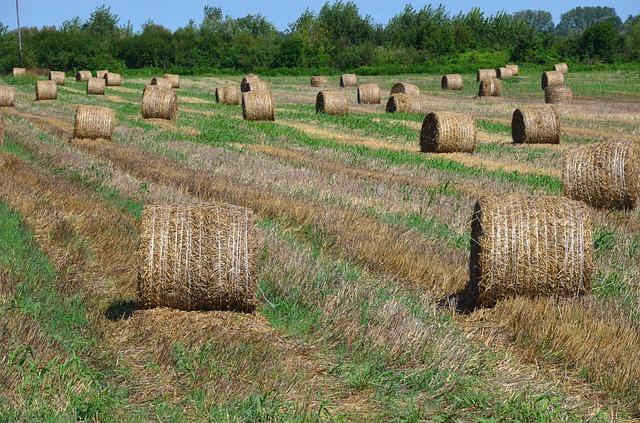
If there’s a special discounted offer on an item or there's a particular in-season food in stock that you like to consume, you should stock up big time on those items, so long as you have the means to store excess food.
When the normal price returns or the food goes out of season, everyone else will be paying double while you’ll still have a supply that you paid a lot less money for.
#17 - Let the offers influence your shopping list
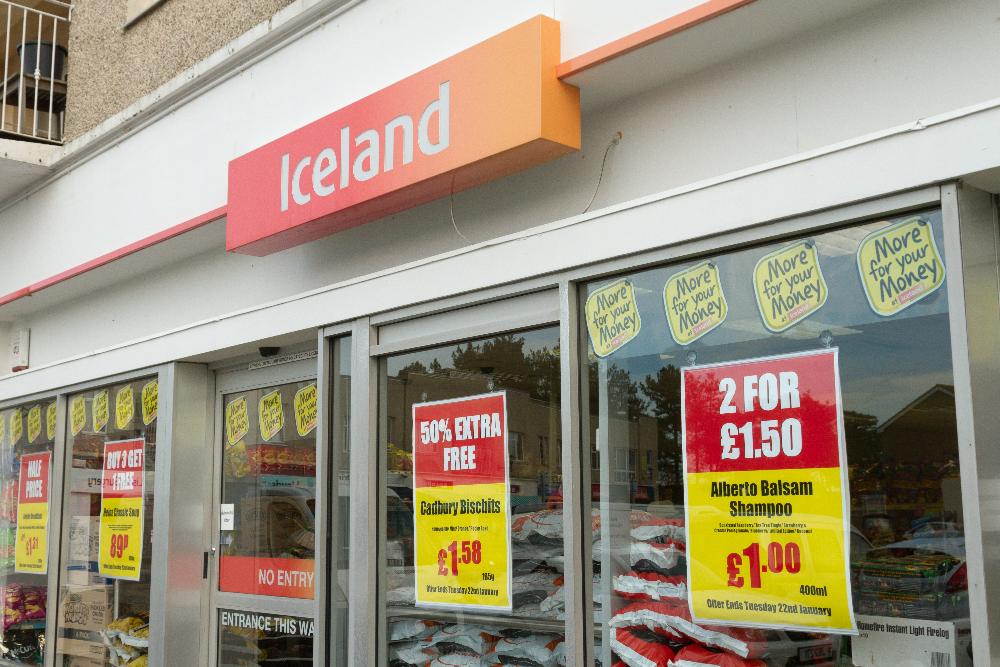
So this tip mainly applies to when you do your grocery shopping at a supermarket. You’ll often see offers like buy 1, get one free, buy 2 for 3 etc or specially discounted items.
You should never go to the supermarket with a completely rigid list of things to buy; a flexible list or general idea in your head is better. That way you can always buy more of what’s on special offer and less of what’s not.
For example, if there’s a special offer on eggs one shopping day, buy more eggs than other staples that day. That week you can cook a lot of egg-based meals like omelettes, quiches and so on. If the next shopping day the special offer is on the bread, buy more bread than other staples that day.
Just be aware that these offers will only benefit you if they coincide with the actual items that you generally need to buy. Don’t buy a ton of unhealthy junk food or processed food items just because there’s a special offer on them.
#18 - Minimize impulse buying (unless it saves money)
When you go out to buy groceries, you probably have a list or an idea in your head of what you need to buy.
Try to stick to the original list as much as possible, unless the reason for deviating from the list is some kind of special offer that actually saves you money.
Yes, temptations will arise, often at the checkout, with all the impulse snack-sized items deliberately stacked in front of it, but you have to just say no and just buy the items you actually need and which represent good value for money.
To reduce impulse buying, one of the best pieces of advices we’ve heard is to make sure you don’t go shopping on an empty stomach. Hunger pangs and a supermarket full of edible goods is a recipe for disaster on the impulse buying front.
#19 - Do rain checks
A rain check is where you get a store to issue you with a coupon that allows you to purchase an out-of-stock item that’s currently on sale, at a later date, for the same reduced price. This could be worth doing if you'll be able to return to the same store again.
#20 - Take advantage of price-matching guarantees
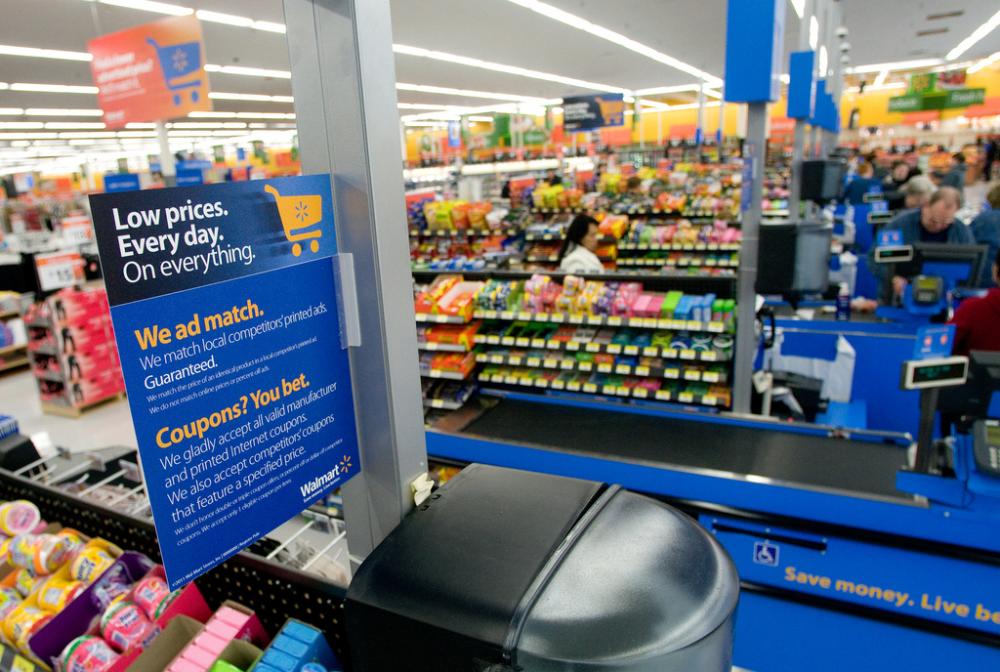
Some supermarkets and grocery stores have a ‘price-matching guarantee’. If you show them a current sales flyer showing that a competitor offers an identical item for a lower price, they will price-match it for you.
They also usually keep the competitors’ sales flyers behind the desk so you don’t necessarily always have to show one.
Price matching is really great for travellers who love the convenience of one-stop shopping and don't have the time to be dashing around from supermarket to supermarket trying to get the best possible deals on everything.
#21 - Inspect your receipt for errors
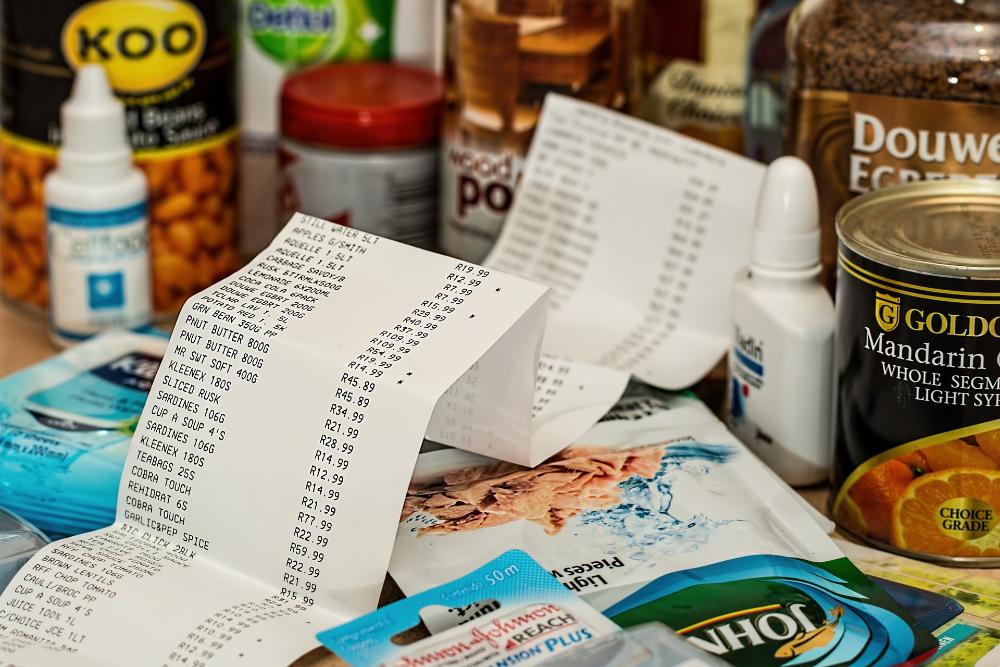
Errors in the checkout process could increase your bill. Don’t trust that the cashier will always get it right. When a person is working hard all day on a repetitive task like that it’s easy for him/her to have lapses in concentration. Always give the receipt a scan and check for any glaring errors.
#22 - Eliminate waste
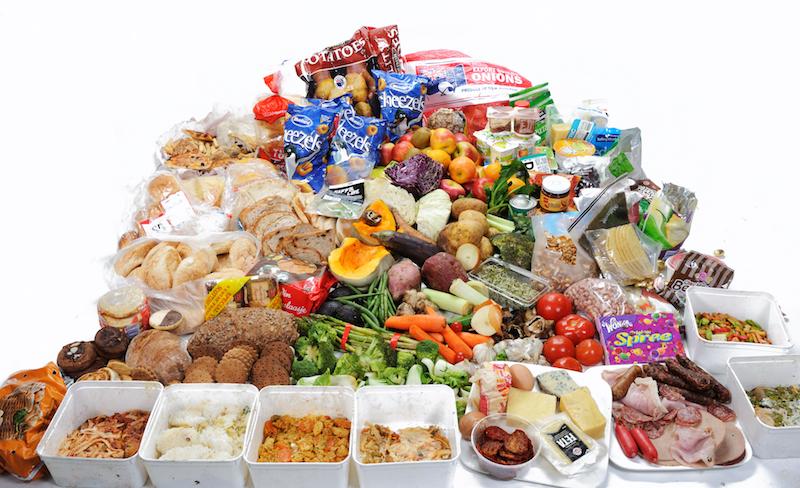
Wasting groceries is wasting money. If you’re travelling and won’t have access to a fridge or freezer, try to avoid buying excessively large quantities of perishable foods and always check your expiry dates on meats, dairy products and other foods that can go bad quickly.
When buying large bunches of bananas or other fast perishing fruits in hot countries, buy unripe ones as they can otherwise perish before you’ve had a chance to consume them.
If you’re the type that doesn’t eat bread crusts, repurpose them into bread crumbs for cooking or use the breadcrumbs for ground bait to catch fish with. Nothing should go to waste.
If you buy mouldy produce or otherwise inconsumable food from a shop or supermarket, return the item and get your money refunded. At least that way, you won't be paying money for wasted food.
#23 - Some foods are cheaper to make yourself
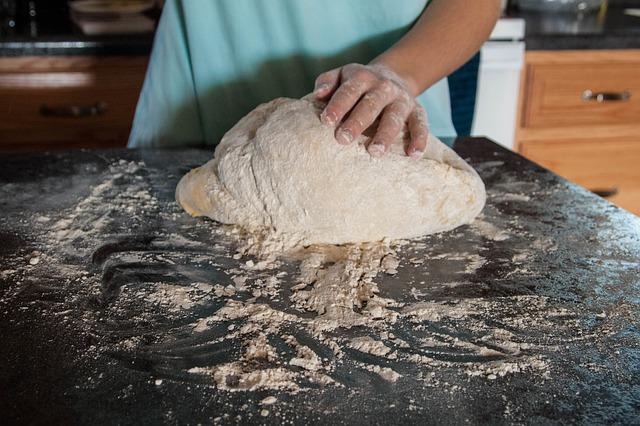
With flour, salt and water you can make bread more cheaply than you can buy it. Other foods like peanut butter, hummus, pesto sauce, pizza, almond milk and salad dressings can be cheaper to make at home from the raw ingredients.
However, some foods can be more expensive to make than to buy and others can have about the same cost, whether you buy or make your own.
If you have the time and means to make some of your own foods while travelling then take advantage! You’ll learn a lot in the process and save money to boot.
#24 - Stay in meditation retreat centres

In India, there are ashrams or spiritual retreat centres for those who wish to reflect on life and practice meditation for a few weeks or months.
You sometimes have to pay a small amount each day for accommodation but there are usually complimentary meals for those staying at the ashram. Usually the food consists of something like rice, dahl and vegetables with some buttermilk to wash it all down.
In Myanmar and Thailand, there are also several buddhist meditation retreat centres that operate on a donation basis, where travellers will receive free food and free lodging. To avail of the free food, you usually have to sign-up for a 7-10 day program that requires you to remain in a meditative silence for the entire duration of the stay, so beware!
#25 - Forage, fish or hunt for your food

We’ve often supplemented our diet while travelling with our own freshly caught crabs, fish or foraged fruit.
When staying on Neil Island in the Andaman Islands, we cooked up a delicious meal one evening from foraged crabs just outside our guesthouse. We found mango trees laden with fruit here also, which provided us with tons of ripe mangoes. Coconuts were also dropping from the trees near our guesthouse, which we didn’t hesitate to take advantage of either.
In India, we caught fresh fish from the sea with a hand line for dinner every evening, when staying at Paradise Beach in Gokarna.
If the opportunity arises to have an easy meal like this and you have the skills then why not take advantage and save some money?
#26 - Go dumpster diving

Dumpster diving might sound a bit extreme, but supermarkets all around the developed world literally throw away tons of food every year. In the U.S alone, a staggering 165 billion dollars worth (more than 30% of the total) of perfectly edible food is thrown away each year. Other developed nations aren’t too far behind, with Europe for example wasting 89 million tonnes of food per year.
You can therefore literally live like a king off the food in supermarket dumpsters and indeed the food thrown out by restaurants and bakeries. In the U.S, professional dumpster divers can recover $200-250$ worth of food per hour from supermarket dumpsters, stocking their larders with $1,000 worth of food in half a day’s work.
Some people are travelling all over Europe without needing to buy groceries because of this trend of wasting food in the developed world. They’re living off food thrown away by supermarkets, restaurants and bakeries and they’re getting far more food than they need to live.
And don’t think the food that’s thrown away has always gone bad either. If that was the case, dumpster diving wouldn’t be a ‘thing’.
Most of the food that’s thrown away is still sealed inside its airtight packaging, protecting it from flies and contamination inside the dumpster…. and a lot of the food that’s thrown out is well in advance of its sell-by date.
Even for the thrown-out food that has expired, it’s nearly always still edible for another few days, weeks or even months beyond the expiry date, depending on the specific food in question. The reason for this is that sell-by dates build in a very healthy ‘safety margin’.
#27 - Consume less
It may seem obvious but how many people just buy and consume way too much food? How many people use food as a crutch to deal with emotional problems or just fall victim to gluttony?
Worldwide, nearly one-third of the world’s population is obese or overweight. If you just look at the developed nations of the world, the figure is more like two-thirds.
Now, all that excessive consumption is surely hiking up people’s grocery bills don’t you think? If people just bought and consumed what they actually needed, the grocery bills would go way down.
Most people don’t need to take in 3,000 + calories per day, unless they're doing some serious calorie burning activities. The average person can live very well on 2,000-2,500 calories or so per day and can survive on a lot less.
A final word
As global food prices continue to rise, all you can do is keep adapting by applying all of these tips and getting smarter about your grocery purchasing habits.
As a traveller you also have the option of living and travelling primarily in countries where grocery prices are lower or where they are not as heavily affected by inflation as they are in others. That is one advantage that settled people don't have.
We hope that the tips shared in this article have been very helpful but now you must go out and apply them. Next time that you're in the supermarket or grocery shop, think back to the tips in this article and see if there are any that you can apply to save money.
Do you have any of your own tips for saving money on groceries to share with us? Please let us know by leaving a comment below.
JOIN OUR LIST
SUPPORT US
FOLLOW US
ABOUT US
Our names are Eoghan and Jili and we hail from Ireland and India respectively.
We are two ardent shoestring budget adventure travellers and have been travelling throughout Asia continuously for the past few years.
Having accrued such a wealth of stories and knowledge from our extraordinary and transformative journey, our mission is now to share everything we've experienced and all of the lessons we've learned with our readers.
Do make sure to subscribe above in order to receive our free e-mail updates and exclusive travel tips & hints. If you would like to learn more about our story, philosophy and mission, please visit our about page.
Never stop travelling!
FOLLOW US ON FACEBOOK
FOLLOW US ON PINTEREST
-lw-scaled.png.png)


